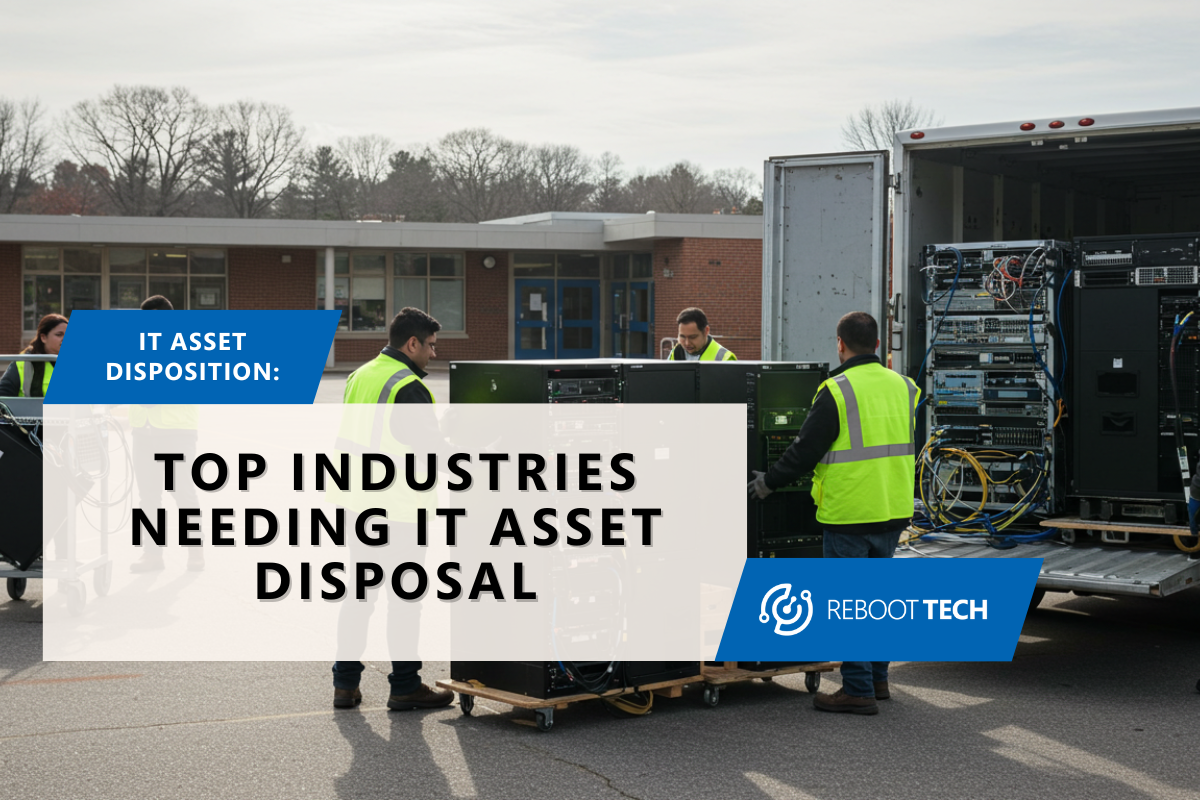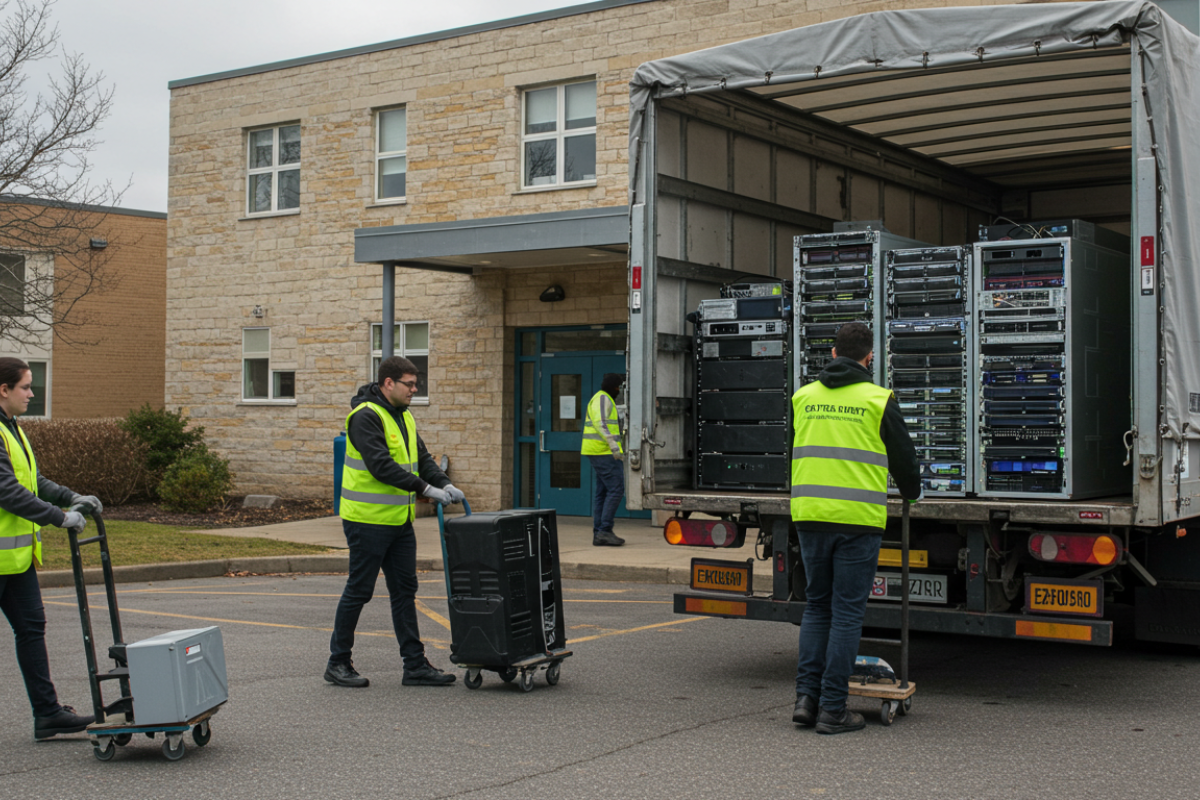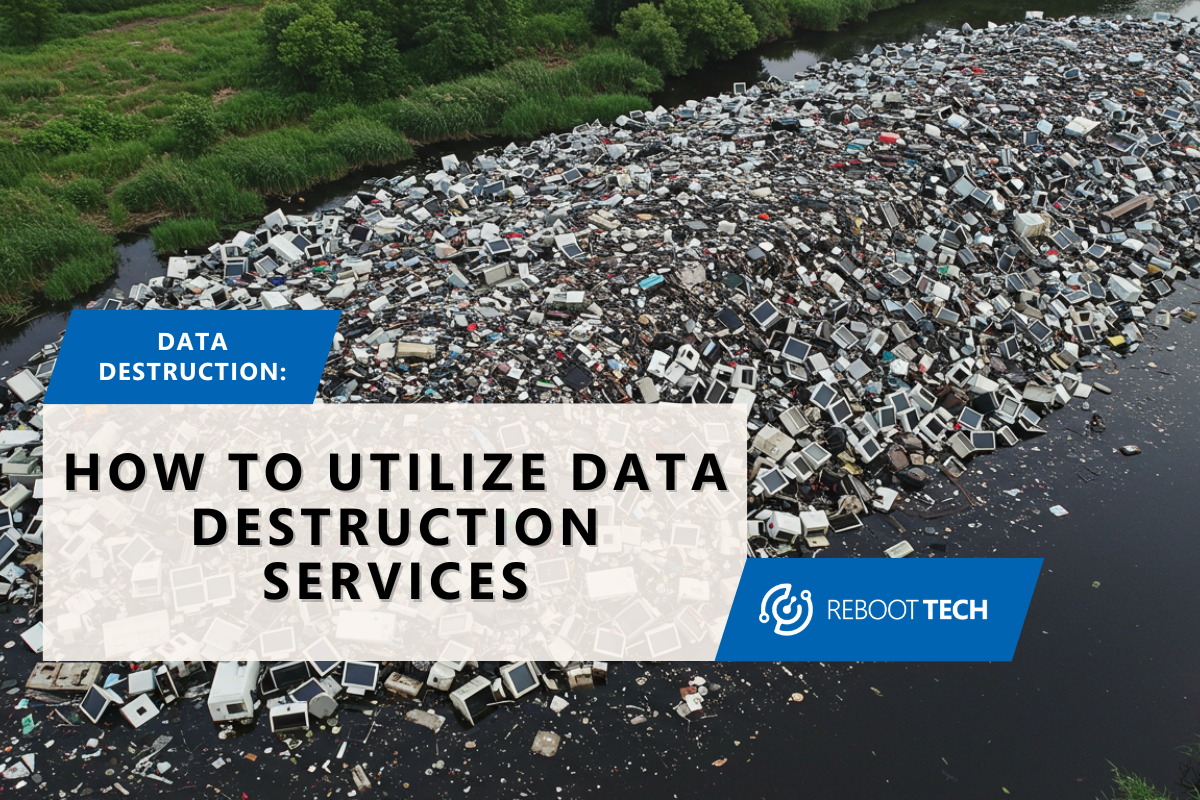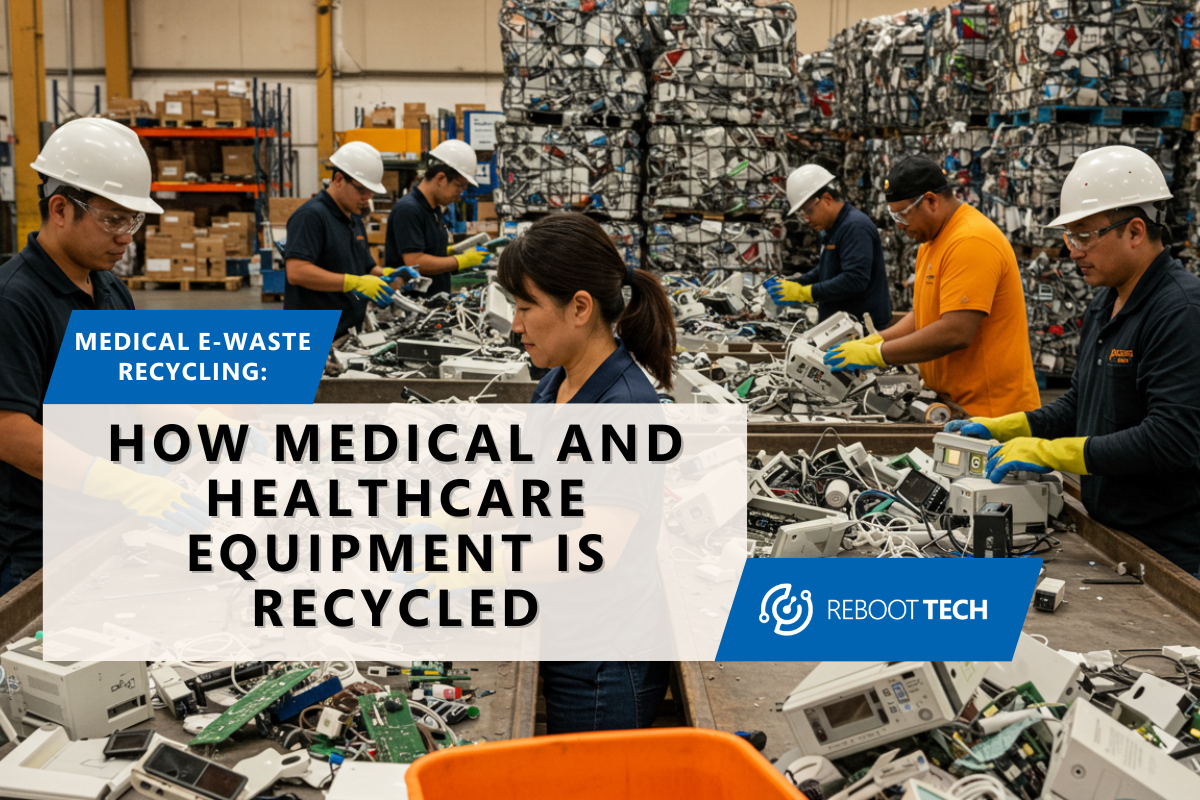
Why IT Asset Disposal Matters
Technology is evolving at an incredible pace. Businesses upgrade their computers, servers, and networking equipment every few years to keep up with demand. But what happens to the old devices that get replaced? Many companies don’t have a proper plan for disposing of outdated IT assets, and that can lead to serious problems.
Improper disposal of IT assets can result in data breaches, legal fines, and environmental hazards. Old computers, hard drives, and servers often contain sensitive data, even if files have been deleted. If the wrong person gains access to this information, it could put businesses and customers at risk. That’s why IT Asset Disposal (ITAD) exists—to help organizations safely and responsibly get rid of old technology while ensuring data security and environmental sustainability.
This article will explore why ITAD is so important, share key e-waste statistics from 2024, and highlight the industries that need ITAD the most. If your business relies on technology (which most do), understanding secure IT disposal is essential.
Why Is IT Asset Disposal Important?
Throwing away old computers is not just careless—it can be dangerous and illegal. Deleting files is not enough. Even formatted hard drives can still be recovered by skilled hackers. Without proper IT disposal, organizations risk data leaks, security breaches, and major compliance violations.
The Risks of Improper IT Disposal
- Data Breaches – Outdated storage devices contain sensitive data, including personally identifiable information (PII), that can be retrieved if not securely wiped or destroyed.
- Regulatory Fines – Laws like HIPAA, GDPR, and PCI DSS require businesses to properly dispose of old IT assets. Failure to comply can result in hefty penalties.
- Environmental Hazards – Computers and IT equipment contain hazardous materials like lead, mercury, and cadmium. Improper disposal can cause soil and water contamination.
- Lost Value – Old IT equipment still has value. Components can be refurbished, resold, or recycled to recover raw materials, reducing e-waste.
Working with a certified ITAD provider ensures secure data destruction, legal compliance, and eco-friendly recycling.

E-Waste Stats from 2024
The need for ITAD is greater than ever. Here are some staggering e-waste statistics from 2024:
- The world generated over 63 million tons of e-waste, a 5% increase from 2023.
- Only 17.4% of e-waste was properly recycled.
- Millions of computers, servers, and storage devices are discarded by businesses every year.
- Data breaches from improper IT disposal cost companies millions in lawsuits and fines.
As businesses continue to upgrade their IT systems, responsible disposal methods must be prioritized.
1. Healthcare
The healthcare industry deals with highly sensitive patient data and strict data protection regulations. Hospitals, clinics, and research facilities frequently update their IT systems, which means constant disposal of outdated technology.
Why Healthcare Needs ITAD:

- Electronic Medical Records (EMR) Systems – These store sensitive patient data and require secure data wiping before disposal.
- Diagnostic Equipment & Imaging Technology – MRI machines, CT scanners, and X-ray systems store patient records and must be properly handled.
- HIPAA Compliance – U.S. healthcare providers must comply with HIPAA laws, which require safe and secure disposal of patient-related IT assets.
A hospital upgrades its patient data servers. If the old equipment is not securely erased, hackers could access private health records, leading to identity theft, legal fines, and reputational damage.
A hospital upgrades its patient data servers. If the old equipment is not securely erased, hackers could access private health records, leading to identity theft, legal fines, and reputational damage.
Beyond servers and imaging systems, healthcare institutions also rely on a vast network of connected medical devices such as infusion pumps, heart monitors, and digital thermometers that store patient data. If not properly decommissioned, these devices could expose sensitive information.
For example, in 2021, a major health provider suffered a data breach due to improperly disposed hard drives containing unencrypted medical records. HealthReach Community Health Centers in Waterville, Maine, began notifying over 100,000 patients of a health data breach.
2. Financial Services
Banks, investment firms, and insurance companies handle massive amounts of financial data. Data security is their top priority, and improper disposal can lead to fraud, identity theft, and legal consequences.
Why Financial Services Need ITAD:
- ATMs, banking terminals, and servers store customer transactions and account data.
- Regulations like PCI DSS and GLBA mandate proper disposal of financial records.
- Data breaches in the finance sector can lead to billions in losses and irreversible reputational damage.
A bank decommissions hundreds of outdated customer service computers. If the hard drives are not securely wiped, a cybercriminal could retrieve sensitive banking information, resulting in massive financial losses.
Financial institutions also manage vast amounts of personal and corporate banking details, loan information, and investment records, making IT asset disposal critical for risk management.
3. Education
From elementary schools to universities, educational institutions rely on technology for teaching, research, and administration. With thousands of students and faculty members using digital devices, proper disposal of outdated IT assets is crucial.
Why Education Needs ITAD:
- Schools frequently upgrade student laptops, desktops, and servers.
- Servers store student grades, personal information, and financial aid records.
- Compliance with FERPA (Family Educational Rights and Privacy Act) requires secure disposal of student records.
A university upgrades its data center. If the old servers are not properly destroyed, student records could be leaked, leading to legal liability and data privacy violations.

Educational institutions also operate extensive online learning platforms, digital testing systems, and faculty management tools that store vast amounts of personal and academic data. Improper disposal of outdated IT equipment could allow bad actors to gain access to student and faculty information.
4. Government and Public Sector
Government agencies manage classified data and citizen records, making secure IT disposal a matter of national security.
Why Government Needs ITAD:
- Agencies handle classified documents, surveillance data, and secure communications.
- Federal laws mandate strict IT disposal practices.
- Improper disposal can lead to serious security breaches.
A government agency improperly disposes of old security servers. Hackers recover classified intelligence files, creating national security threats.
Beyond national security risks, improper IT asset disposal in government institutions can also lead to financial fraud and identity theft. In a well-known case, improperly discarded government-issued laptops were resold with sensitive social security numbers and financial records still intact. This type of negligence can put thousands of citizens at risk.
Additionally, outdated infrastructure such as traffic control systems, emergency response networks, and law enforcement databases must be securely decommissioned to prevent cyber threats. ITAD services include secure data destruction, helping public institutions uphold security standards and prevent data misuse.
5. Corporate Enterprises
Large businesses produce vast amounts of digital data and upgrade their technology frequently, making ITAD a necessity.
Why Corporate Enterprises Need ITAD:

- Old office computers, mobile devices, and cloud storage servers need secure disposal.
- Data protection laws require businesses to securely erase or destroy old IT assets.
- Customer data must remain protected even when devices are retired.
A tech company replaces its customer service call center computers. If not properly wiped, thousands of customer records could be accessed, putting the company at risk of legal action and financial loss.
Corporate enterprises also face risks related to mergers, acquisitions, and employee turnover. Old workstations, company-issued phones, and cloud storage backups contain sensitive company strategies, trade secrets, and confidential communications.
In a notable case, a multinational corporation suffered a major security breach when discarded employee laptops were found to contain unsecured client contracts and proprietary data. Partnering with an IT asset management provider ensures that sensitive business data is permanently erased or destroyed before equipment is discarded or resold.
How to Work with an IT Asset Disposition Company
Choosing the right certified IT Asset Disposal Company ensures secure and compliant disposal of IT assets. Reboot Tech offers:
- Secure data destruction, including physical destruction and certificates of destruction.
- Eco-friendly electronics recycling.
- IT asset remarketing to recover value from retired technology.
- Compliance with data protection laws.
If your business needs IT asset disposal, contact Reboot Tech today. We ensure secure, sustainable, and legal IT disposal.
Making ITAD a Priority
IT asset disposal is critical for security, compliance, and sustainability. Whether in healthcare, finance, education, government, or corporate IT, businesses must ensure safe disposal of outdated electronics.
By working with a certified ITAD provider, companies can protect data, comply with laws, and reduce e-waste. Don’t risk a data breach—prioritize ITAD today!





